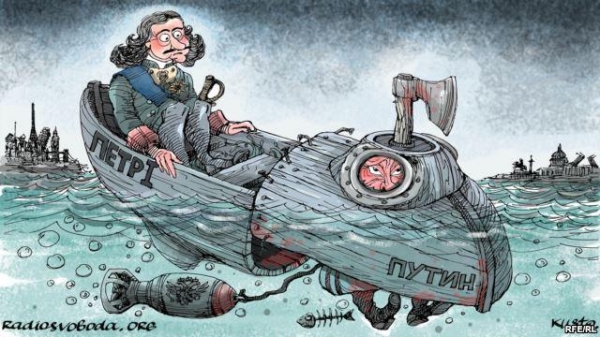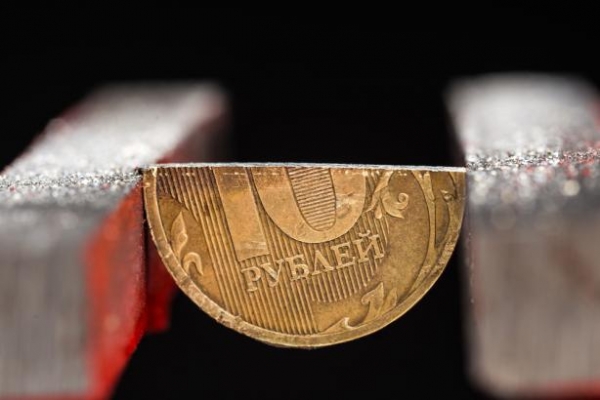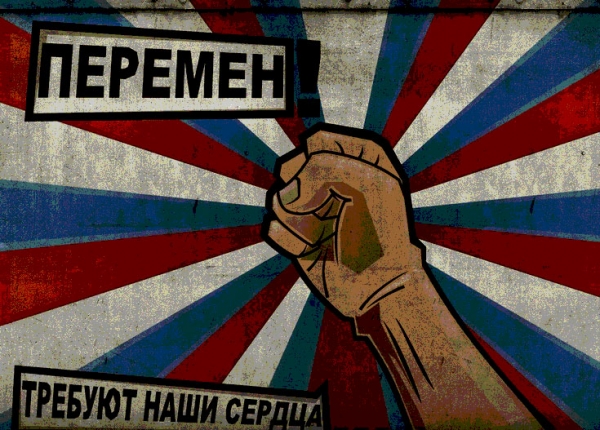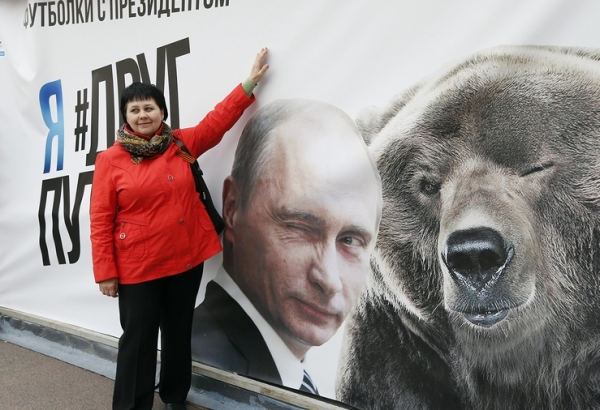
Editor Financial Times John Lloyd believes that the Russian regime is based only on the popularity of the President When Russia failed?
Oil prices that reached a rocky bottom, Western sanctions, inflation, demographic crisis… When you’re waiting for the second Russian revolution?
A year later, for the centennial of the first? In 1917 the workers, peasants and soldiers — not a huge majority, but still a significant number rebelled against the wealthy aristocrats who lived in St. Petersburg’s gilded palaces.
Post-Soviet ruling class headed by President Vladimir Putin moved to rassolozhennye palaces of the Moscow Kremlin and owns untold wealth, inflating it for their not very wealthy younger years.
It would seem a tempting target for disgruntled people. But don’t see any signs of revolution, even serious demonstrations.
And the man in the heart the Kremlin web is still sky-high ratings in the range of 80-90%, as shown by opinion polls. It has been two years since Russia’s March 2014 annexation belonging to the Crimea to Ukraine.
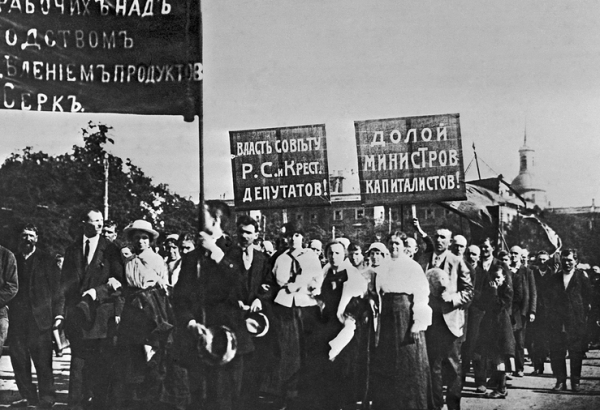
The workers of Petrograd for the July demonstrations in 1917. Photo: TASS In written in English the story of Vladimir Nabokov “a bit of conversation, 1945” (Conversation Piece, 1945) white guard Colonel, the immigrant, the implacable enemy of the Communists, who seized his country, admired by Joseph Stalin: “…the great Russian people woke up, and my country — again a great power.
Today in every word, coming from Russia, I feel the power, feel the greatness of our mother Russia” (translated by Dmitry Chekalov. — Open Russia).
Famous liberal journalist Andrey Kolesnikov writes that the current Russian leadership is inclined to “the sacralization of freedom” — a new version of the social contract looks like “Crimea and spiritual bonds in exchange for freedom.”
With this new wave of national pride began to spread and admiration for Stalin, and to the U.S. and the EU began to treat much worse. Most Russians agree with nabakowski the Colonel, who admired brute force.
This map is planting pride in Russia, “again become a great country”, is the strongest, if not the only Kremlin in the deck and has to play again and again. Robert Kaplan in a recent article wrote that Putin’s foreign policy “must become more creative and calculated…
The more chaos he can create abroad, the more valuable it will seem autocratic stability he provides in his own country”. Regardless of whether or not the President of Russia hates the West, for the sake of its survival it needs to behave as if he hates.
But with all the advances Putin has a problem.
The annexation of Crimea was a compensation for economic difficulties, manifested before the imposition of sanctions. This helped to divert the attention of citizens from the former Putin’s social contract according to which they were subordinate to the state and allowed the leaders to enrich themselves in exchange for a sustainable increase of the level of consumption. As formulated by Kolesnikov, “an eclectic ideology of isolationism and statism feeds mainly on the juices of the past — the energy of the former greatness of the power.
And exactly so it has no what happened, for example, the Communist ideology: a greater goal of the planning horizon, the word, the image of the future”. Kaplan agrees: “Putin will not be able to protect his regime from the consequences of economic collapse.”
One of the most brilliant economists of Russia in the beginning of this week tried to bring a solid base under the expectation that the revival of Russian nationalism and imperialism will be brittle and should be replaced (Kaplan believes that a possible coup similar to the ouster of Nikita Khrushchev in 1964).
Mikhail Dmitriev, now a Professor at the University of Florida, one of a group of bright young liberals, who believed that under Putin the possible reform was economy Minister during Putin’s first term and left power, when he saw that the state slides towards autocracy.
In his speech — the annual lecture on Russia at Chatham house, London’s most important foreign policy expert center, — Dmitriev has appeared as a careful economist. The Russian economy, in his opinion, not in a catastrophic state. The Central Bank manages, as far as possible, to control the decline. The unemployment rate is low, about 6%, is considerably lower than in many Western European countries.
The shortage of imported goods some progress has been made in import substitution. The fall in oil prices is stimulating a new interest in economic diversification, development of non-extractive sectors.
While the country continues in recession; this year is expected to decrease the size of the economy by 1.5%. In the future, perhaps at best, a return to very slow growth: 0.9% in 2017, 1.2% in 2018.
If you’re lucky, the country will need a decade to return to pre-crisis GDP. Employment remains high because companies prefer not to lay off employees and cut salaries. The level of consumption has greatly declined. Unsurprisingly, fell the popularity of the political class.
The approval rating of Prime Minister Dmitry Medvedev has declined substantially, the same thing happened with the heads of most regions.
But with Vladimir Putin all the way. Like many autocrats before him, he remains above the political fray, even if he’s her commanding officer. He is the rock on which it is constructed; an irreplaceable figure. If I lost that support, it is possible to tell, even the love he now receives from the majority of Russians, for existing power structures all will be lost.
And then we — the rest of the world — have to deal with unknown territory, with Russia, no longer United around the leader, and there will be no obvious successor, and the liberals there will remain a small group, still did not enjoy broad public trust.
Hope, ironically, is connected with the protest. Dmitriev notes that the Russian protest movement is usually several years behind economic shocks: a wave of protests started in 2011, three years after the economic crisis of 2008.
The protest movement can bring to the fore as a group stronger, more aggressive nationalist leaders, and those who see in the fall of Putinism opportunity to change the country and to establish new relations with Europe, which itself needs updating.
The idea of a “European future” was the subtext of the attempts of Mikhail Gorbachev to make the Soviet Union more open in the late 1980-ies. She was supported, though not as consistently, under Boris Yeltsin in the 1990-ies.
Vladimir Putin in the early 2000s was thinking of this idea before strongly reject. If Putin fails, the idea has a chance to be reborn. Those who aspires to it, takes courage, strength and support.
But if failure come upon them, we find ourselves in a more dangerous situation than it is now.
Original article: John Lloyd, “When Russia will run out of patience?”, Reuters, 14 April


